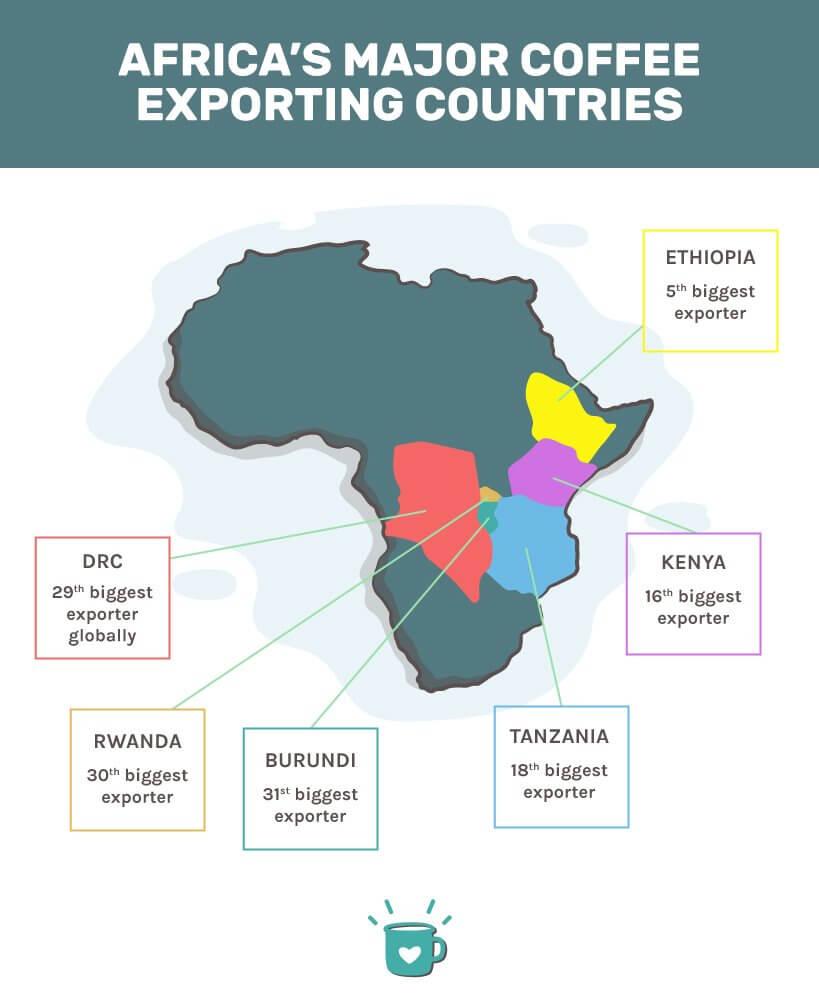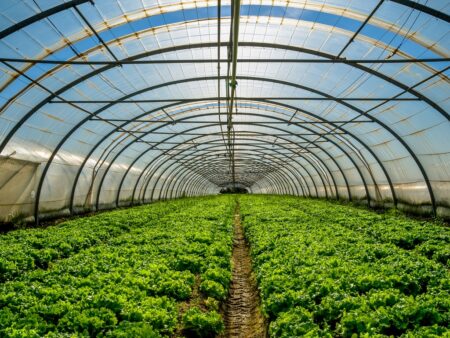- Coffee from the African continent accounts for around 12% of the world’s production of coffee beans and within this Ethiopia and Uganda combined account for approximately 62% of the total output.
- By adding value to their product, small-scale coffee producers can increase their profits, improve their competitiveness, and tap into new and emerging markets.
The African continent, replete with diverse topography and meteorological conditions, has for generations been a bastion of agriculture, with the cultivation of crops like coffee being one of the mainstay pursuits of the agrarian population. In recent times, however, there has been a growing consensus among experts in the field of coffee production that Africa has the potential to reap considerable dividends from the addition of value to its coffee beans. This is a topic that has been the subject of much discussion and debate, with many observers grappling with the complex questions surrounding this issue.
On the one hand, there are those who believe that Africa has the potential to transform its coffee industry into a powerhouse of economic activity, creating new opportunities for growth and development across the continent. They point to the fact that coffee is one of the most widely traded commodities in the world, with global demand for the beverage growing at an unprecedented rate.
By adding value to their coffee beans, African countries can increase their bargaining power in the global coffee market, enabling them to secure better prices for their product and thereby boost their economic competitiveness.
While Ethiopia is commonly regarded as the birthplace of coffee, many of the central and eastern countries of Africa also produce their fair share of excellent coffee beans.
Ethiopia, which is the origin of Arabica coffee, is renowned for its unique Yirgacheffe, Sidamo and Harar Arabica varieties, while Kenya’s fine Arabica beans grown at high altitude near Mount Kenya are in equally high demand.
Coffee from the African continent accounts for around 12 per cent of the world’s production of coffee beans and within this Ethiopia and Uganda combined account for approximately 62 per cent of the total output, according to the World Economic Forum.

Read: China head over heels for Rwanda’s coffee
However, there are also those who question the feasibility of this approach, pointing out that the coffee industry in Africa is plagued by a number of complex and interrelated challenges. These include issues of poor infrastructure and inadequate transportation networks, a lack of investment in research and development, and an inability to effectively regulate the sector and prevent the exploitation of small-scale farmers.
Value addition in the coffee industry
At the heart of this debate lies the question of whether Africa can truly reap the dividends of value addition in the coffee industry.
The notion of value addition can be described as the process of increasing the value of a product through various means. In the context of the coffee industry, this could involve activities such as roasting, grinding, packaging, and branding. By adding value to the coffee, it is possible to enhance its quality, extend its shelf life, and increase its market appeal, thus boosting its price and profitability.
However, as with most things in life, value addition is not as simple as it sounds. The reality is that the coffee industry is a highly competitive and globalized market, with numerous players vying for a share of the profits. This makes it difficult for small-scale coffee producers in Africa to enter the market, let alone add value to their product. To complicate matters further, there are a number of challenges associated with value addition, including the high cost of investment, the need for specialized skills and knowledge, and the difficulty of achieving economies of scale.
Read: How Kenya plans to revive ailing coffee industry
Despite these challenges, there is growing recognition of the importance of value addition for the coffee industry in Africa. By adding value to their product, small-scale coffee producers can increase their profits, improve their competitiveness, and tap into new and emerging markets. Additionally, value addition can help to create new jobs and stimulate economic growth, contributing to the development of the wider economy.
To reap the dividends of value addition, it is imperative that small-scale coffee producers in Africa receive the support and resources they need to develop and implement value-adding strategies. This could include investment in training and capacity building, technical assistance and access to finance. Additionally, it is essential that the coffee industry operates in a supportive and enabling environment, with favourable policies and regulations that encourage value addition and promote the growth and development of the sector.
Types of coffee
Coffee, a ubiquitous drink loved by millions worldwide, comes in a plethora of forms and varieties, each with its own unique characteristics and flavor profile. The diversity of this beverage is truly remarkable, and its ability to adapt to the local culture and taste has made it one of the most sought-after beverages in the world.
To begin, there is the distinction between Arabica and Robusta, two of the most common varieties of coffee beans. Arabica is widely considered to be the superior variety, characterized by its sweet and fruity notes, and its smooth and delicate flavor. Robusta, on the other hand, is known for its strong and bitter taste, as well as its high caffeine content. But despite these generalizations, there is a wide range of variations within these two categories, each with its own unique flavor profile.
Beyond the distinction between Arabica and Robusta, there are also several different brewing methods that can greatly affect the flavor and character of the coffee. For example, espresso, which is made by forcing hot water through finely ground coffee beans, is known for its rich, full-bodied flavor and high caffeine content. Drip coffee, which is made by filtering hot water through ground coffee beans, is characterized by its mild and smooth flavor, and is often preferred by those who want a milder, more balanced coffee. French press coffee, which is made by steeping ground coffee beans in hot water, is known for its rich and full flavor, and is often preferred by those who like a more robust coffee experience.
In addition to these brewing methods, there are also various blends and blends of blends of coffee, each with its own unique flavor profile. For example, a dark roast is characterized by its strong, bold flavor, while a medium roast is known for its balanced, smooth flavor. There are also various blends that are made from different varieties of coffee beans, such as Colombian, Kenyan, and Ethiopian, each of which offers its own unique flavor profile.











